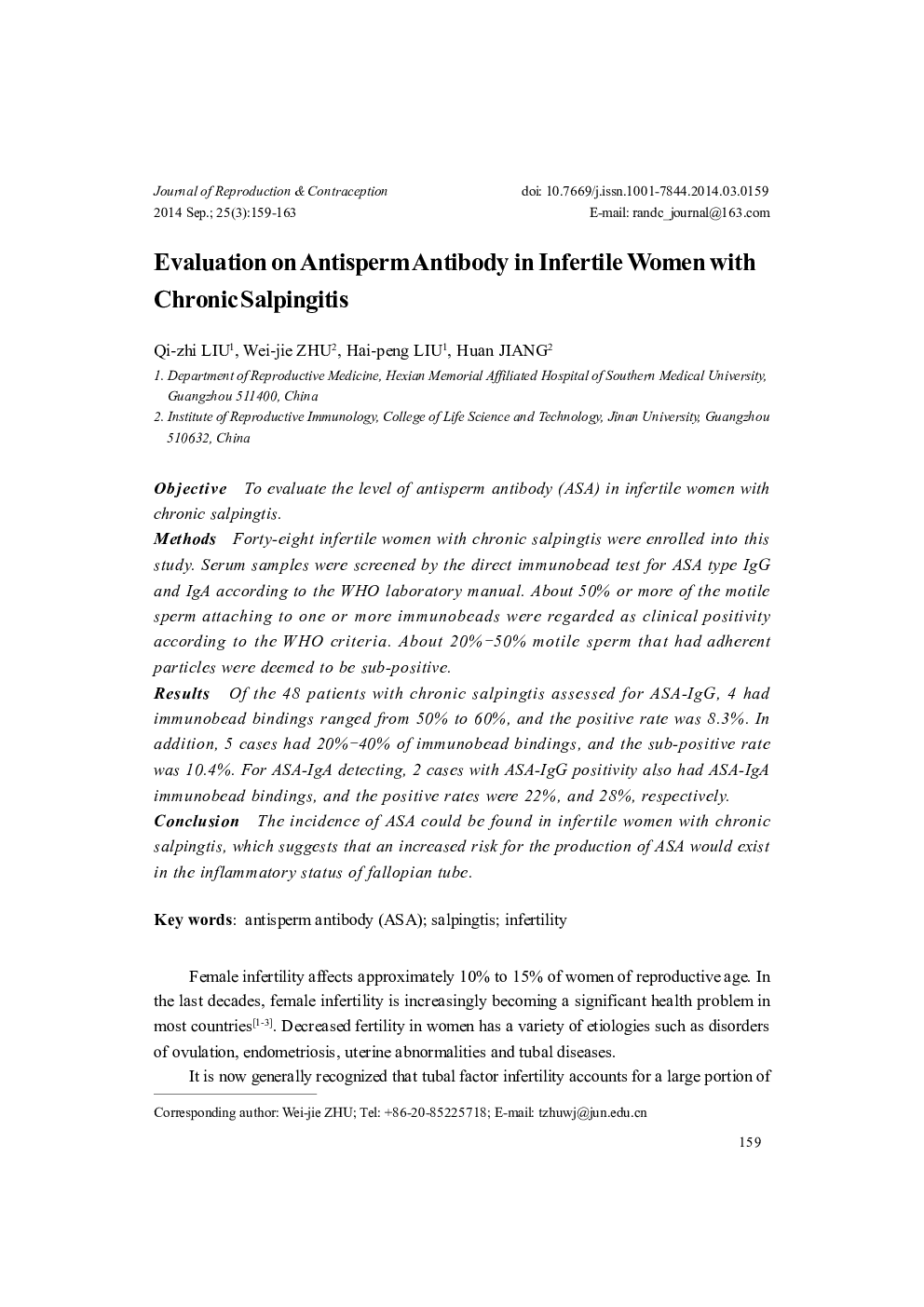| Article ID | Journal | Published Year | Pages | File Type |
|---|---|---|---|---|
| 3964220 | Journal of Reproduction and Contraception | 2014 | 5 Pages |
ObjectiveTo evaluate the level of antisperm antibody (ASA) in infertile women with chronic salpingtis.MethodsForty-eight infertile women with chronic salpingtis were enrolled into this study. Serum samples were screened by the direct immunobead test for ASA type IgG and IgA according to the WHO laboratory manual. About 50% or more of the motile sperm attaching to one or more immunobeads were regarded as clinical positivity according to the WHO criteria. About 20%–50% motile sperm that had adherent particles were deemed to be sub-positive.ResultsOf the 48 patients with chronic salpingtis assessed for ASA-IgG, 4 had immunobead bindings ranged from 50% to 60%, and the positive rate was 8.3%. In addition, 5 cases had 20%–40% of immunobead bindings, and the sub-positive rate was 10.4%. For ASA-IgA detecting, 2 cases with ASA-IgG positivity also had ASA-IgA immunobead bindings, and the positive rates were 22%, and 28%, respectively.ConclusionThe incidence of ASA could be found in infertile women with chronic salpingtis, which suggests that an increased risk for the production of ASA would exist in the inflammatory status of fallopian tube.
